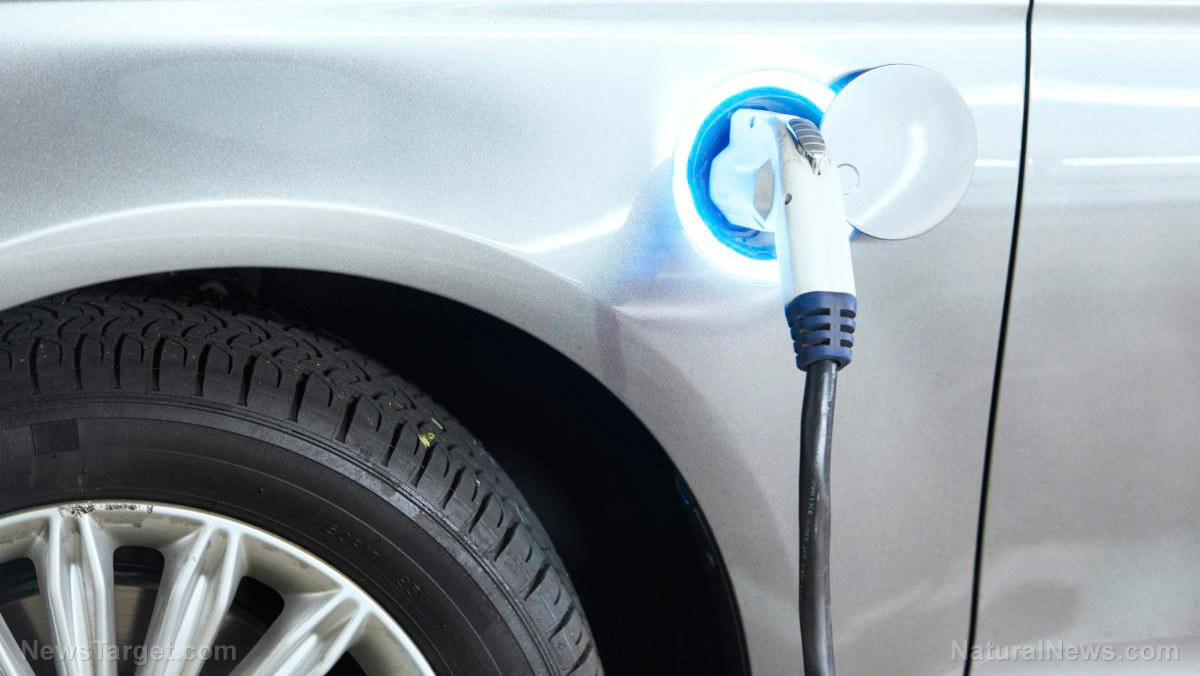Demand for electric cars in the UK plummets due to surging price of electricity
12/14/2022 / By Arsenio Toledo

Demand for electric vehicles (EVs) in the United Kingdom has dropped for the first time since 2020 as soaring electricity costs make the vehicles far too costly to operate.
British automobile sales website Auto Trader noted that EVs accounted for less than a fifth (19 percent) of new car inquiries sent to car dealers through its online marketplace in November. This is down from 27 percent of new car inquiries in June. (Related: Volkswagen reconsidering plans to build new EV battery plants in Europe due to soaring energy costs.)
Stock levels of used EVs in the U.K. has nearly doubled from about 10,600 at the beginning of 2021 to 20,600 at the end of the third quarter of 2022.
Auto Trader further reported that the number of online searches and advert views for used cars has fallen by 12.6 percent in the past 12 months. This is the first time year-over-year interest in electric vehicles has declined since April 2020, when economic restrictions imposed by the global Wuhan coronavirus (COVID-19) lockdowns hampered economic activities.
Auto Trader has attributed the drop in demand for EVs to the surging price of electricity, which makes driving and maintaining EVs in the U.K. prohibitively costly, and the slowly declining prices of diesel and gasoline making traditional internal combustion engine vehicles cheaper to drive.
Furthermore, Auto Trader noted that concerns about government policies toward EVs are preventing potential new car owners from choosing electric models.
This comes as the British government announced that it was withdrawing subsidies for electric cars. This came in two phases. First, back in June, government ministers scrapped a 1,500 pound ($1,855) grant for purchases of new EVs. Then last month, Chancellor Jeremy Hunt announced that new zero-emission vehicles will no longer be exempt from paying road taxes beginning in 2025.
Separate figures regarding EV demand issued by the Society of Motor Manufacturers and Traders showed plug-in pure electric cars and plug-in hybrids only accounted for 28 percent of the new car market in November.
UK not ready for 2030 ban on new gas and diesel car sales
Auto Trader has pushed back its forecast when EVs will account for 50 percent of new car sales in Britain from 2026 to 2027. In its “Road to 2030” report, named after the year when sales of new cars and vans in the U.K. powered by gasoline or diesel will be banned, Auto Trader said electric vehicles remain inaccessible for most people in the U.K. due to surging upfront costs. This keeps EVs as the “preserve of wealthier, older and more affluent buyers.”
An average used electric car in the U.K. costs around 10,000 pounds ($12,382) more than an equivalent gas- or diesel-powered model.
“The later stages of the U.K.’s road to electrification are going to be particularly steep,” said the company in its report.
Auto Trader Commercial Director Ian Plummer believes the slowdown in EV sales is only temporary, but the cost of operating and maintaining an electric car remains “a significant pothole on the road to 2030, and highlights that urgent action is required to drive adoption beyond just the more affluent who can afford the ‘green premium’ of EVs.”
Auto Trader Editorial Director Erin Baker said the focus of the British government and civil society on reducing electricity consumption due to the energy supply crunch has contributed greatly to “the rapid decline in consumer appetite” for EVs.
She added that this willingness to forego the use and sale of EVs shows that “the market is on thin ice where mass electric adoption is concerned.
“And with the forecast of new car electric sales reaching 50 percent being pushed back to 2027, the market faces a precarious combination of factors which could cause major potholes on the road to 2030 without further action from [the British] Government and industry to encourage mass adoption,” Baker said. “There are some positive signs with running costs still in EVs’ favor and more affordable models in the pipeline, particularly those from Asia. But today’s slowdown in demand for EVs translates into lower sales as we enter 2023.”
Learn more about how the energy crisis in Europe is affecting electric vehicle use at RoboCars.news.
Watch this clip from InfoWars discussing how electric vehicles are actually very terrible for the environment.
This is from the InfoWars channel on Brighteon.com.
More related articles:
Switzerland plans to temporarily limit electric vehicle use this winter due to energy shortage.
Maintaining an electric vehicle has become far TOO EXPENSIVE for Canadians.
Electric vehicle entrepreneur struggles to find charging station for his car during road trip.
EV NIGHTMARE: California grid operator asks electric car owners to avoid charging their vehicles.
Sources include:
Submit a correction >>
Tagged Under:
car costs, car maintenance, cars, cost of living, cost of living crisis, electric cars, electric vehicle maintenance, electric vehicles, electricity, energy crisis, energy shortage, energy supply, flying cars, robocars, United Kingdom
This article may contain statements that reflect the opinion of the author
RECENT NEWS & ARTICLES
SupplyChainWarning.com is a fact-based public education website published by SupplyChainWarning.com Features, LLC.
All content copyright © 2021 by SupplyChainWarning.com Features, LLC.
Contact Us with Tips or Corrections
All trademarks, registered trademarks and servicemarks mentioned on this site are the property of their respective owners.




















